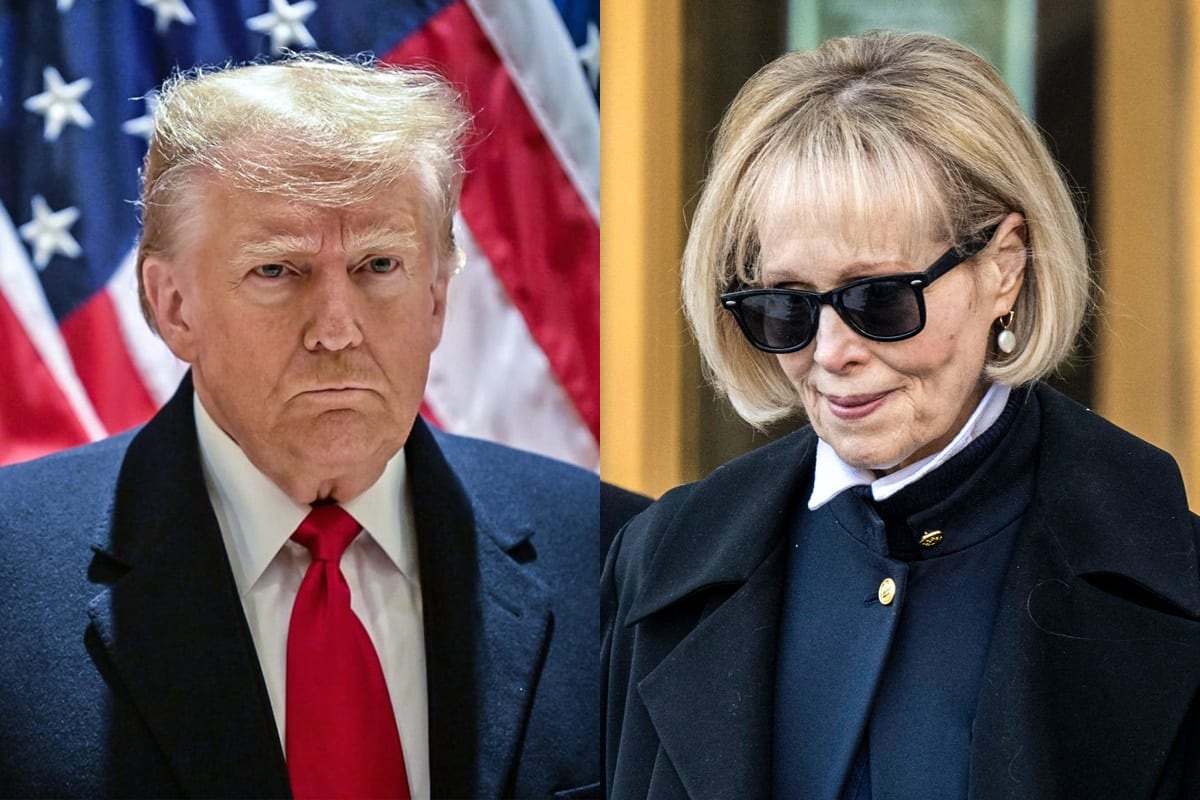E. Jean Carroll, a prominent author who accused Donald Trump, the former President, of sexual assault, recently secured a substantial $83.3 million in damages for defamatory statements.
In an interview on “CBS Mornings,” Carroll suggested that the jury’s verdict conveyed a powerful message, ending disseminating disparaging comments about her. Trump, resolute in his denial, has pledged to contest the jury’s decision.
The federal jury in New York granted Carroll $65 million in punitive damages and $18.3 million in compensatory damages for defamatory remarks made after her 2019 accusation of sexual assault by Trump. Carroll initiated legal proceedings when Trump dismissed her claims, branding her a “whack job” and asserting they had never met.

E. Jean Carroll (Credits: CNBC)
Carroll’s attorneys contended that Trump’s comments had exposed her to threats and tarnished her reputation. The first lawsuit, concluded in the previous year, found Trump culpable for defamation and sexual abuse. In the second trial, the jury focused on determining the damages Carroll would receive.
Reflecting on the substantial amount awarded, Carroll expressed astonishment, questioning, “Who can conceive of $83 million?” She views the award as an avenue to effect positive change, emphasizing the potential to do “a lot of good” with the funds.
Carroll described the anticipation of facing Trump in the courtroom as “terrifying.” She detailed the emotional impact, revealing a momentary breakdown and loss of language. However, upon seeing Trump, her perspective shifted, recognizing him as “nothing,” and the fear that had consumed her dissipated.
Carroll’s attorney, Roberta Kaplan, pointed to Trump’s conduct throughout the trial, both in the courtroom and on social media, as a potential factor in the jury’s decision.
Kaplan highlighted Trump’s disruptive behavior during the trial and his continuation of defamatory posts on Truth Social, emphasizing that such actions demonstrated a lack of respect for the legal system and likely influenced the jury’s stance.
While Trump has refrained from commenting on Carroll following the recent ruling, she remains skeptical about the former president’s future behavior. Carroll suggested that if Trump deems it advantageous for his campaign fundraising efforts, he may again exploit her situation.
In Carroll’s eyes, Trump’s potential future use of her case exemplifies a pattern of exploitation, stating, “If Donald Trump needs to use me again to raise campaign funds, I think he will do it. He’s just using us. And if he needs us, he will again.”
The trial’s aftermath underscores the complexity of the legal battle and the ongoing dynamics between Carroll and Trump. The legal proceedings have far-reaching implications, touching upon issues of defamation, sexual assault, and the broader context of the #MeToo movement.























